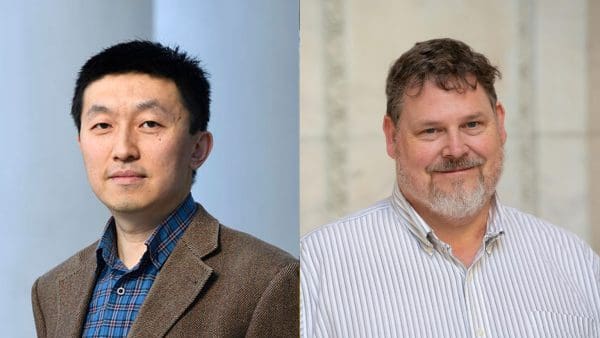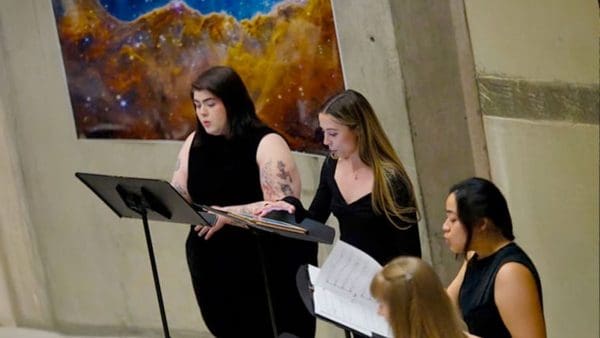Maurice “Moishe” Bessman
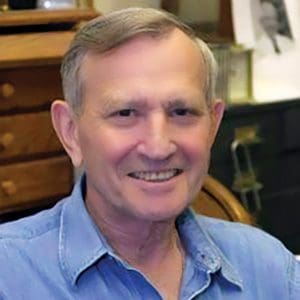
Bessman, renowned biochemical enzymologist and 50-year member of the Department of Biology, died November 12, 2021. He was 93.
Bessman focused on biochemistry, enzymology, synthesis of nucleic acid derivatives, and proteomics. Though he retired in 2008 as research professor and professor emeritus, he continued his research until 2021, studying the Nudix hydrolase family of enzymes—a large, widely distributed class of proteins that his team discovered had a common signature sequence.
Born in Newark, New Jersey, Bessman earned an AB at Harvard in 1949, and an MS and PhD at Tufts University in 1952 and 1955, respectively. He served as Charlton Research Fellow in the Department of Biochemistry at Tufts and as postdoctoral fellow at Washington University School of Medicine. Bessman arrived at Hopkins as assistant professor in 1958 and was named professor in 1962.
In 2016, alumnus Mike Engler ’73 (BA), ’78 (PhD) established the Maurice Bessman Lacrosse Scholarship in honor of Bessman, a devoted fan of Hopkins lacrosse.
Ludwig “Lenny” Brand
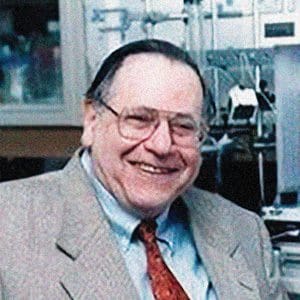
Brand, a 48-year member of the Department of Biology, professor emeritus, and Academy Professor, died January 5, 2021. He was 90.
Brand’s research focus was to better understand the dynamic structure of proteins, biological membranes, and nucleic acids, and to relate their dynamics to function. Using light as a probe in conjunction with molecular dynamics simulations, he examined ultra-fast dynamic interactions in proteins using nanosecond time-resolved fluorescence spectroscopy, an approach for which his lab was one of the early pioneers. Brand and his team were among the first to use time-correlated single photon counting, as well as introducing and developing the concepts of decay-associated spectra and time-resolved emission spectra.
Born in Vienna, Austria, Brand graduated from Boston Latin School in 1951, and earned a bachelor’s degree from Harvard in 1955 and a PhD from Indiana University in 1960, both in chemistry. He served as research associate at the Weizmann Institute of Science in Rehovot, Israel, and arrived at Johns Hopkins’ biology department and McCollum-Pratt Institute in 1964, where he remained until his retirement in 2012.
Charles Dempsey
Renowned art historian Dempsey, professor emeritus in the Department of the History of Art, died on February 22, 2022. He was 84.
Specializing in Renaissance and Baroque art, Dempsey traced the artistic, cultural, and intellectual dimensions of the artists he studied, drawing innovative conclusions about how they worked. His research spanned subjects as varied as pagan mythology, archaic demons re-fashioned as “putti,” the cosmology of Hieronymus Bosch, and the late Renaissance reform of painting by the Carracci and their impact on the naturalism of Caravaggio.
A native of Providence, Rhode Island, Dempsey earned a BA from Swarthmore College in 1959 and his MFA and PhD from Princeton in 1962 and 1963, respectively. He was a fellow in the history of art at the American Academy in Rome, and then became assistant professor and then professor of history of art at Bryn Mawr College. Dempsey arrived at Hopkins in 1980 as professor of Italian Renaissance and Baroque art, and served as department chair and as director of studies at Johns Hopkins Center for Italian Studies in Florence, Italy. He was named emeritus in 2007.
Paul Feldman
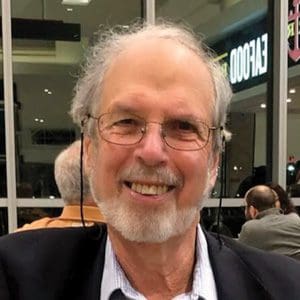
Astronomer Feldman, a worldwide leading authority on comets who pioneered the field of ultraviolet spectroscopy of comets, died on January 26, 2022. He was 82.
In addition to groundbreaking contributions to cometary science, Feldman—professor emeritus in the Department of Physics and Astronomy and Academy Professor—made important contributions to the fields of planetary and satellite atmospheres and astronomical instrumentation. He was principal investigator of a NASA-supported sounding rocket program, and was responsible for more than 50 sounding rocket launches. He is largely responsible for Johns Hopkins’ reputation as a leader in solar system ultraviolet astrophysics and spectroscopy.
Feldman graduated from Brooklyn Technical High School, and earned a bachelor’s degree and PhD (1964), both in physics, from Columbia University. He served as instructor at Columbia and as an E. O. Hulburt Fellow at the Naval Research Laboratory, and arrived at Hopkins in 1967, where he chaired the department from 1996 to 2002. He retired in 2010.
To honor his memory, the family has established the Paul D. Feldman Fellowship in Far Ultraviolet Spectroscopy From Space.


